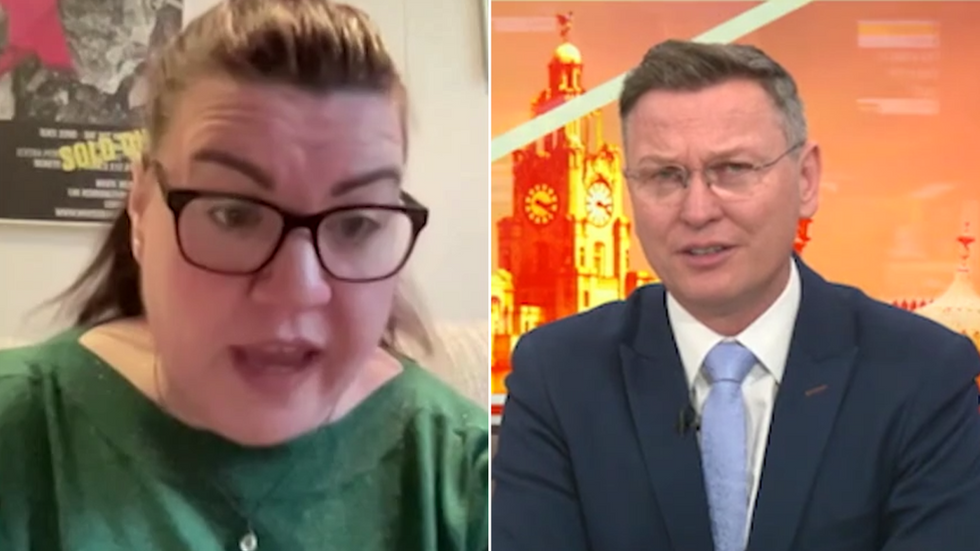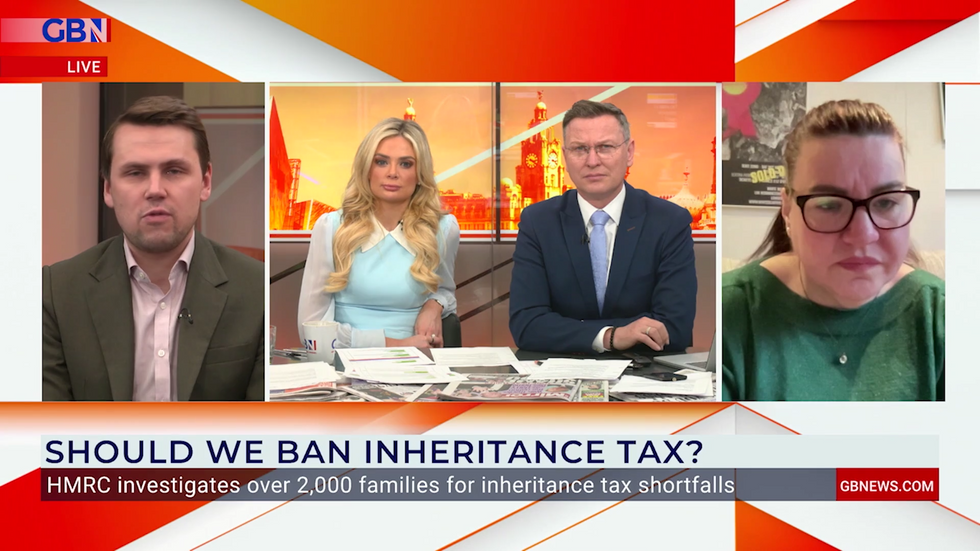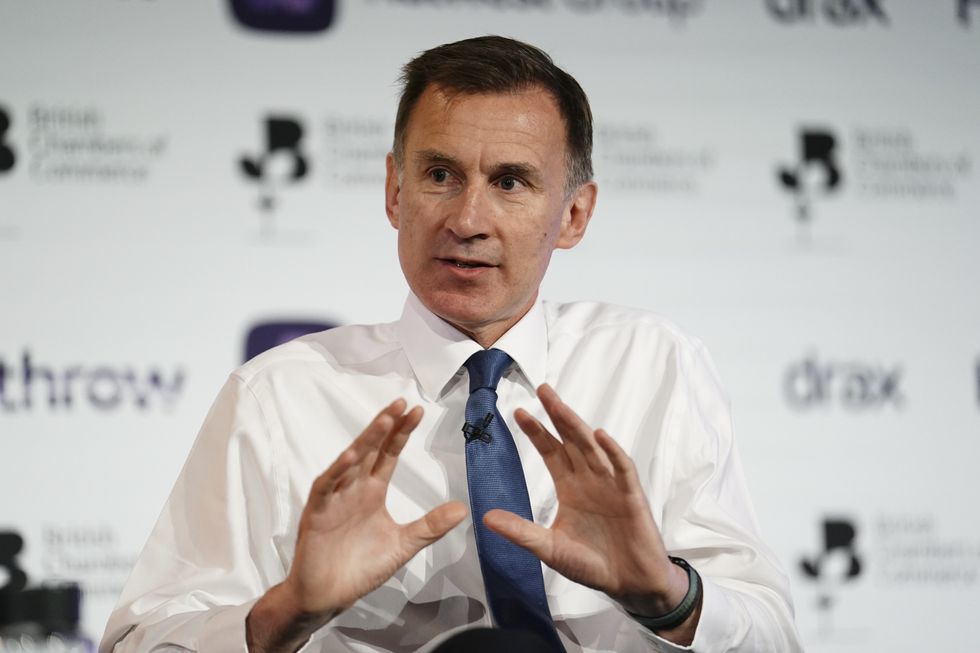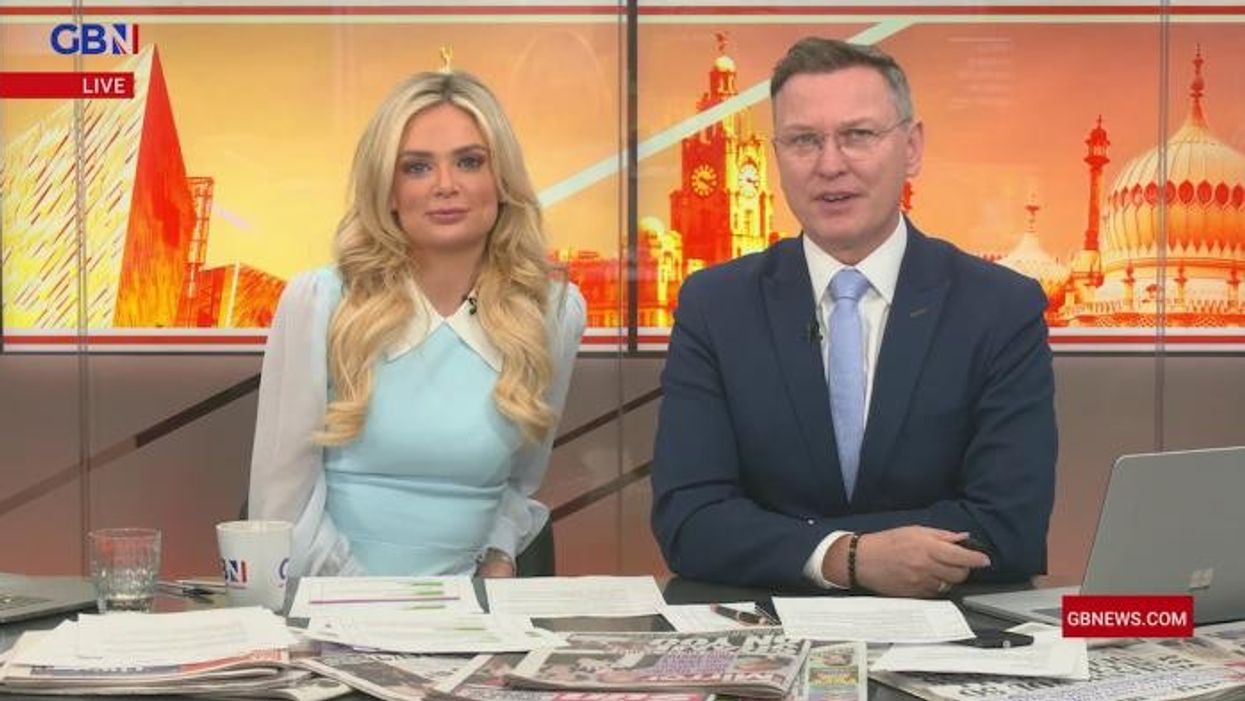Don't Miss
Most Read
Trending on GB News
A fiery debate on inheritance tax (IHT) broke out on GB News which left host Stephen Dixon speechless.
It comes as amid a HM Revenue and Customs (HMRC) investigation into thousands of families who may not be paying enough IHT.
More than 2,000 households are reportedly under investigation with many not realising they are liable to paying the tax.
It has prompted calls for an inheritance tax ban after an Ipsos poll in July 2023 finding that it is regarded as the most unpopular tax by Britons.

Emma Burnell's argument left Stephen Dixon perplexed
GB NEWS
Despite this, political consultant Emma Burnell argued on GB News that leeway should not be given to families and a “softly, softly” approach will not plug a hole in public finances.
“I’m blown away by that”, Stephen Dixon responded.
LATEST DEVELOPMENTS
“I don’t follow that line of argument. By that line of argument, you can’t cut any tax”, Elliot Keck from the TaxPayers’ Alliance waded in.
“The broader picture is, IHT is a tax on death and a tax on misfortune. If you give all your wealth away to your children and you die eight years later, none of it will be subject to tax.
“If you do it seven years before you die, based on pure misfortune, the people who inherit your wealth will be subject to tax.
“That often means rearranging family estates, houses in quite rapid movement.

 The inheritance tax threshold has remained at £325,000 since 2010 and Chancellor Jeremy Hunt has now frozen it until 2028PA
The inheritance tax threshold has remained at £325,000 since 2010 and Chancellor Jeremy Hunt has now frozen it until 2028PA“That means potentially selling properties to pay possibly very large bills to the taxman.
“It hits those who are just over the threshold. Those who are super rich are able to afford tax advisers to rearrange their wealth that can take advantage of the many exemptions.”
Stephen Dixon said: “The bottom line is, it’s a death tax. Why should people pay a tax on an income that has been taxed multiple times already?
“A lot of people in this country, even if they don’t have to pay it themselves, think it’s inherently unfair.”
Burnell showed little sympathy, telling Dixon that people will need to shell out in order to pay for “decent public services”.
“Would you rather pay those taxes while you’re alive or would you rather pay them after you’ve finished using your own money?”, she argued.
“Most people would rather pay when it is not hitting themselves. In terms of family estates, you get the first £325,000 tax free. If it is going directly to your family, that raises to £500,000. We’re talking about the estates of the top four per cent of the country.
“The thing Elliot is right about is, rich people are exploiting loopholes. That is what should be talked about.”
An HMRC spokesperson told GB News: "More than 93 per cent of estates are forecast to have zero liability in the coming years – and the vast majority of liable estates pay the correct inheritance tax.
"Investigations are opened into cases where compliance issues have been detected to ensure that everyone pays the right amount of tax.”









